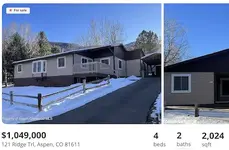@Cynllo@Alpha Hunter Zero - Not sure if you know what they are, but aren't interested in that option; or don't know what they are. @magoo mentioned REITs in his post. These are exchange traded funds of managed real estate, that pay a dividend from the rental income. I think that they are superior for most people, as they offer exposure to the solid real estate sector without any of the management hassle.
See - https://www.forbes.com/sites/invest...for-reliable-income-for-2023/?sh=551cbd27ede3
I am interested in buying at least one property to live in periodically and then be a managed short-term rental the rest of the time. The reason being is I want the place to stay in. If I didn't, I'd just be looking for a REIT. The time spent managing taxes, repairs, admin, bills for one property is not worth it IMO. I guess parking spaces offer a lot less overhead though.
I think someone also mentioned it above that the next 1-3 years might be a great time to buy into a REIT, as they could end up in more of a bear market than they already are. If bought near the bottom of a bear market, they will probably end up giving you over 10% dividends and more in appreciation. A nice stable base for a portfolio.
I didn't know what they are but your summary of them has me intrigued and tempted to try out. I need to research more though. From prelimary reading it just seems like real estate "stocks" if we're keeping things extremely simple. Im wondering how much money would be a good starting point for this type of investment for decent returns in the short term.
@magoo
Thank you for the REIT suggestion


